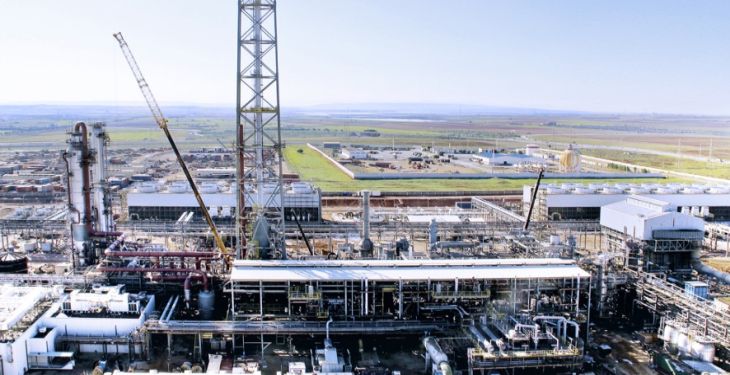MOL has reached another important milestone in its flagship strategic chemical project and entered into engineering, procurement and construction (EPC) contracts with thyssenkrupp Industrial Solutions for the implementation of the entire polyether polyol complex.
The EPC contracts cover the entire technical scope of the Polyol Project apart from certain elements mainly relating to project management, site integration and infrastructural costs and commissioning of the assets.
The new chemical complex will have a polyether polyol production capacity of 200kt per annum, larger than originally envisaged and will be capable to produce a wider range of end-products than foreseen at the time of the announcement of the new long-term strategy of MOL. It will also include a propylene glycol production unit to maximize operational and commercial flexibility. The total CAPEX of the Polyol Project is EUR 1.2 bn, including already incurred costs.
The new manufacturing complex will be built in Tiszaújváros, Hungary and is planned to be operational by the second half of 2021. Ground works and basic construction activities are set to begin already in Q4 2018.
“Reaching the final investment decision on the Polyol Project and the signing of the EPC contracts with our renowned strategic partner, thyssenkrupp, is another major milestone of our transformational strategy, MOL 2030. We will be entering a knowledge-intensive, high value-added chemicals market with an innovative and environmentally friendly technology, allowing us to capitalize on rising regional demand and to exploit additional growth opportunities in CEE. The expertise and know-how of thyssenkrupp will remain instrumental in the implementation phase,” said Zsolt Hernádi, MOL Group Chairman-CEO.
In line with its 2030 strategy, MOL Group will move further along the petrochemical value chain towards semi-commodity and specialty chemicals products, transforming into a leading chemical group in CEE. Polyether polyols, which serve as feedstock for polyurethane foam, were identified as the main direction in MOL’s petrochemical expansion due to their wide applications in the automotive, construction, packaging and furniture industries. Through this key investment MOL aims to become a strategic partner of polyurethane producers in CEE, building on its fully integrated value chain, state-of-art technology and service excellence.
